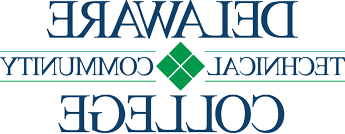
Chemistry Math Concentration
Associate Degree Program
If you are interested in a career in chemistry, pharmaceuticals, chemical engineering, or other scientific fields, the Associate Degree in Chemistry Technology: Math Concentration is an excellent start. Completion of the degree is equivalent to the first two years of a bachelor’s degree in chemistry and allows you to make a seamless transition into a four-year program at the University of Delaware, Delaware State University, or other senior institution.
If you are interested in immediate employment upon finishing your associate degree, you can work as a chemical technician in the chemistry, pharmaceutical, or engineering industries.
Knowledge of chemistry is critical in areas such as biology, chemical engineering, dentistry, forensic science, materials science, medicine, and pharmacy. If you are already working for an organization involved in any of these fields, an associate degree could provide you with opportunities for advancement.
Offered at the following campus(es): Stanton
What You Can Do
In this program, you will gain the knowledge and skills to prepare you for positions such as:
- A chemical technician in the chemistry, pharmaceutical, or engineering industries
- A junior chemistry major at a local university
What You Will Learn
Program Graduate Competencies
The Program Graduate Competencies listed below identify the major learning goals related to your specific program of study and identify the knowledge and skills you will have when you graduate to be successful in your chosen field.
- Apply knowledge of the theories and principles of chemistry.
- Follow safety procedures.
- Perform basic laboratory operations and techniques.
- Keep a laboratory notebook following standard laboratory practices and present data in an organized written format.
- Prepare common laboratory solutions.
- Prepare and purify samples using common techniques.
- Communicate in a professional manner.
- Analyze samples by common qualitative and quantitative techniques.
- Use and maintain common laboratory instruments and equipment.
- Apply differential and integral calculus in the solution of problems.
Core Curriculum Competencies
The Core Curriculum Competencies listed below identify what you will be able to do as a graduate, regardless of your program of study. You will acquire these core competencies through general education courses and program-specific coursework. You will be expected to use relevant technology to achieve these outcomes:
- Apply clear and effective communication skills.
- Use critical thinking to solve problems.
- Collaborate to achieve a common goal.
- Demonstrate professional and ethical conduct.
- Use information literacy for effective vocational and/or academic research.
- Apply quantitative reasoning and/or scientific inquiry to solve practical problems.
Suggested Pathway to Graduation
Semester 1
| Number | Course Title | Credits |
|---|---|---|
| SSC 100 | First Year Seminar | 1 |
| BIO 150 | Biology I | 4 |
| CHM 150 | Chemical Principles I | 5 |
| CIS 107 | Introduction to Computers/Application | 3 |
| MAT 281 | Calculus I | 4 |
| ENG 101 | Composition I | 3 |
Semester 2
| Number | Course Title | Credits |
|---|---|---|
| CHM 151 | Chemical Principles II | 5 |
| ENG 102 | Composition II | 3 |
| SCI 130 | Introduction to Research | 2 |
| PSY 121 | General Psychology | 3 |
| MAT 282 | Calculus II | 4 |
| Or | ||
| ECO 111 | Macroeconomics | 3 |
| Or | ||
| ECO 122 | Microeconomics | 3 |
Semester 3
| Number | Course Title | Credits |
|---|---|---|
| CHM 240 | Organic Chemistry I | 4 |
| CHM 250 | Analytical Chemistry I | 5 |
| PHY 281 | Physics I with Calculus | 4 |
| Or | ||
| PHY 205 | General Physics I | 4 |
| SOC 111 | Sociology | 3 |
Semester 4
| Number | Course Title | Credits |
|---|---|---|
| CHM 241 | Organic Chemistry II | 4 |
| CHM 251 | Analytical Chemistry II | 4 |
| PHY 282 | Physics II with Calculus | 4 |
| Or | ||
| PHY 206 | General Physics II | 4 |
| ENG 122 | Technical Writing and Communication | 3 |
* DTCC students intending to transfer to University of Delaware (UD) through a connected degree are advised to confirm their admission eligibility directly with UD.
* The following connected degree programs at UD have an additional course requirement that must be completed prior to transfer. Please note that the additional course will not be covered by financial aid as it not required for the DTCC degree.
- BS in Biochemistry requires BIO 151
- BS in Marine Science: Marine Biology Concentration requires BIO 151
- BS in Marine Science: Oceanography Concentration requires MAT 283
To complete program requirements, you must pass the above courses and earn at least 67 credits. The number of courses and credits required for graduation may be more depending on college readiness and the elective courses offered in your program major (if electives are a part of the program).
CHMAASCEM
Pursuing a Bachelor's Degree?
This is a Connected Degree program that enables you to complete your associate degree and then transfer to a four-year degree program as a junior. See a program advisor for details!
This program is offered at the Stanton campus.
This program is offered at the Stanton campus.
Lakshmi Cyr
Department Chairperson, Instructional Director
lcyr@orkexpo.net
(302) 453-3791
This program is offered at the Stanton campus.

